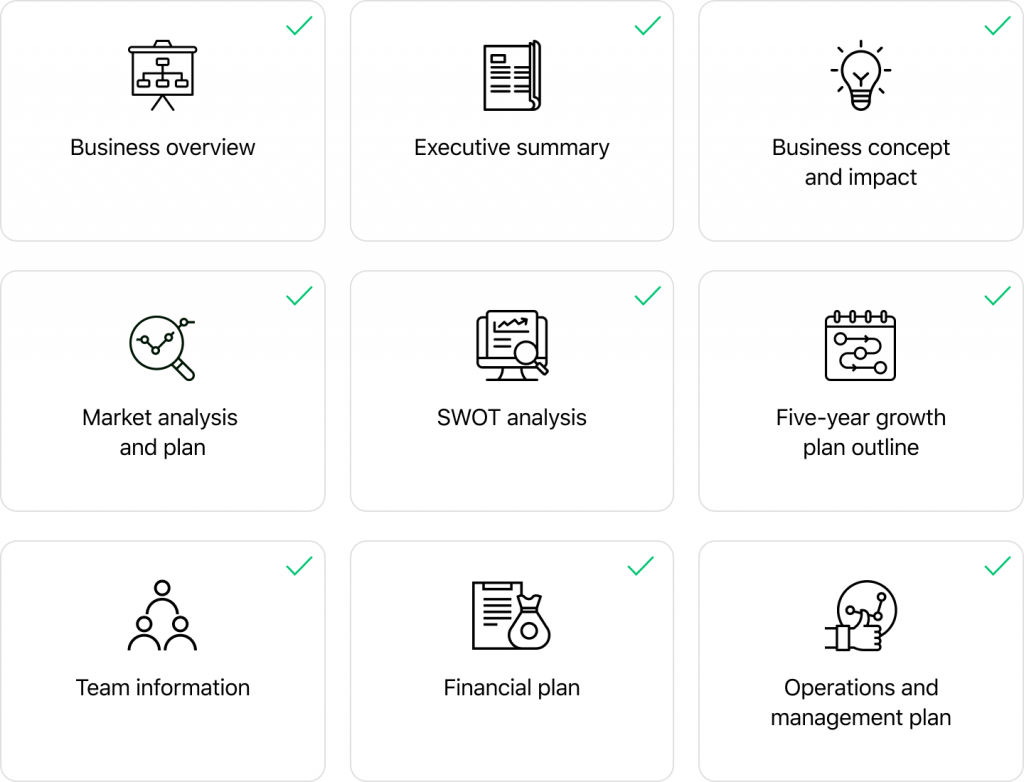75% of venture capital start-ups fail, according to Shikhar Ghosh, a Harvard Business School Senior Lecturer, speaking to the Wall Street Journal. For finance business founders, these statistics can be fear-inducing. However, failure isn’t guaranteed, and errors can be excellent teachers in future success.
As a financial business turned into a fully-fledged fintech, we know all about the pitfalls of making it (and sometimes breaking it). That’s why we’ve gathered together some common mistakes finance business owners make in the highly competitive finance industry to help founders, owners, and decision-makers see mistakes as opportunities to learn and grow as a financial company.
Finance business mistakes and how to grow from failure
As the saying goes, “failure to try is the greatest failure of them all.” That’s why before we dive into the top 10 finance start-up mistakes, we’d like to take a moment to note that this isn’t a guide to only see the failures, but instead is life hacks to how to succeed at a financial business to scale effectively.
No.1 Unclear value proposition
The fintech market is set to grow at a CAGR of 25.18% between 2022 and 2027, with an estimated value of $326 billion by 2026. What this indicates is not just that current fintechs are successful, but that more companies are hitting the market. And this is why, one of the biggest small lending business mistakes, or any financial business mistakes, to watch out for is the failure to deliver a clear value proposition.
Your Unique Selling Point (USP) is what sets you aside from the competition. So, what is the best way to avoid this mistake and hit the high notes?
- Know your customer—no, not KYC regulations this time. Instead, this is all about conducting market research, customer research, and user interviews to understand what your customer is truly interested in.
- Define your USP—know what you bring to the market and ensure you ‘sell’ to those key points.
- Test out your value proposition—companies don’t always get it right the first time around. That’s why testing your value proposition is crucial in ensuring it works and isn’t just some phrasing you use.
- Communicate clearly—make sure your entire team is onboard and knows your business proposition. This helps marketing develop more effective strategies to get your product in front of your customers.
- Keep talking—research isn’t just a tool to be used at the start and forgotten about. Make sure to keep seeking feedback from your users and your team.
No.2 Impressive product but not user-centered
You’ve had input from day one—you’ve defined the strategy, created the project, and shipped it. However, one of the top small business mistakes to avoid goes equally for parents as it does for business owners—it’s time to let it go into the world and grow. For a tech product, that means it’s time to listen to someone else—the users. To avoid falling into this trap, try:
- Utilize user research—UX research is growing and with good reason. Knowing the insight behind your users decisions is essential to understanding how and why they use your product.
- Set clear goals for customer acquisition—for your product to grow, you need to onboard new customers. To do this, start by setting clear goals for your customer acquisition teams. This can be done via sales, marketing, and customer success teams.
- Pay equal attention to customer retention—however, it’s important not to neglect your already loyal base. Remember to deliver on your promises and ensure satisfied customers long-term.
No.3 Ignoring digital trends
Loan Management System Trends: AI, Security & Compliance in 2023According to research by McKinsey, 90% of surveyed C-level team members report undertaking large-scale digital transformation recently. Although results did not always live up to expectations, most top-level staff still believed there was value in these measures. But what does that mean for a finance company? Despite the costs, digital transformation delivers results— efficiency, reduced costs, and improved customer experience—and one of the top small business mistakes to avoid is to skimp on the tech now, hoping for returns later. Instead:
- Keep on top of tech trends—follow industry guides, thought-leaders, learn about what technology is being used and becoming available. Take note of tech such as ChatGPT, robo-advisors, blockchain, and more.
- Attend industry events—Money 20/20 and Finovate are top conferences, but get your brand and your name out there and learn from more established players in the field.
- Experiment—with emerging technology, staying ahead of the curve is often about a willingness to try new technology before anyone else. Don’t be afraid to run experiments and analyze the results.
- Watch the competition—always know what your competitors are up to, and which tech is in their stack. This way, you can adjust your strategy accordingly.
Do you follow digital trends in finance?
No.4 Not having a growth plan
Failing to prepare is preparing to fail, which is why it’s no surprise that at no.4 in the list of financial business mistakes is not developing a financially viable growth plan. Small businesses initially may run on fumes, but eventually, serious strategizing needs to be done regarding finances for that business to transform into an enterprise. Mistakes usually occur for one of four reasons here—lack of direction or focus, difficulty finding funding from investors, cash flow and management issues, or the inability to analyze financial performance.
- Establish clear financial goals—understand your company’s current finances and put a realistic plan in place. Establish growth goals, profitability, and investment plans at the beginning.
- Make a growth plan—lay the groundwork for what comes next. Create projected financial statements, including income statements, balance sheets, and cash flow statements.
- Seek investment—investors require data to back up investments. Ensure it’s there before seeking outside investment.
- Be radically honest about finances—hoping something will recover isn’t going to change things. Instead, what will be, is taking a hard look at the finances and being honest if something needs to change.
- Analyze risk—analyze risk and establish a risk management plan if something goes wrong.
- Seek advice—look to experts and other founders for advice on what they would do as experience trumps book learning.
- Be ready to adjust the plan—nothing is perfect the first time around. Use this time to adjust, adapt, and move forward.

No.5 Not building an experienced team
The financial world is a tricky space laden with challenges, and with an inexperienced team, you become more likely to fall into every trap along the way. By having the right team at your side, you can avoid issues with regulatory bodies due to compliance shortcomings, inefficiency, difficulty retaining customers, issues with funding, and challenges in scaling. Such candidates are often few and far between, which is why it’s important to focus on your team so they can focus on your clients:
- Looking for candidates with certifications—CFA, CFP, and FRM are some of the industry qualifications to look out for. Depending on your specific needs, other qualifications may also be relevant.
- Creating a desirable work culture—top-level staff often do their best work in a highly-collaborative environment, find out what your team needs to function, and do their utmost to implement these practices.
- Providing development opportunities—ongoing training, development opportunities and more allow your team to grow and learn.
- Offering flexibility—hybrid and remote working is more than a trend. It’s an opportunity to get the best staff on board, regardless of location.
No.6 Neglecting compliance & regulatory requirements
Legal penalties, reputation damage, limits to growth potential, and increased risks are just some of the dangers of not following the compliance and regulatory requirements that are part and parcel of the financial industry. Avoid this faux pas by:
- Getting legal advice—regulatory and compliance procedures can be complex, which is why having expert help onboard from the beginning to set things in motion (and follow through) is a must.
- Hiring compliance specialists—ensuring the rules are followed throughout the company by monitoring and enforcing compliance issues at all levels—from sales and marketing to support and development.
- Undertake reviews and audits—it always pays to keep track of how we are doing. That’s why having independent reviews ensures zero slack when it comes to compliance.
- Keeping documents—make sure the right records are on hand to deal with any issues that could arise. This includes keeping track of client documents, transactions, and communication, where needed.
No.7 Failure to build a robust loan management system
Loan Management System Overview: Features & RequirementsOf the small lending business mistakes, this is the one we most commonly see happen. Although it doesn’t apply to every business, when it does occur, it can be a challenge to fix. Not having an LMS in place means portfolio management difficulties, ineffective loan processing, challenges in performance tracking, issues identifying new opportunities, and more. To solve this, it’s important to set the right system in place at the beginning:
- Get the features you need—as a rule, lending software can be diverse, so it’s important to analyze the features you need before seeking out the software tools to do the job.
- Seek software that can scale—don’t just look for the tools you need right now. Instead, focus on how your company will grow and which features you’ll need in future. Trading from one technology to another is an additional challenge and best avoided where possible.
- Note integration functions—not all tech will integrate easily. Watch out for this function to cut down on costs when selecting tools.
- Explore security features—ensure you meet regulatory requirements by having the right security features onboard for your market.
- Try it out first—don’t buy blind. Instead, where possible, test the tools in real-life to see how they work for your individual business case.
Looking for robust loan management software?
No.8 Over-reliance on external funding
Loans, venture capital investment, and more, while these, if used right, can be agents for growth, used incorrectly or over-relied on, they can do more harm than good. External funding is great for boosting your business. However, as a main income stream, it can cause your SME to have a lack of control over finances, difficulty finding future funding, and challenges in exiting, all of which add up to be financial business mistakes you don’t want to make. Instead:
- Creating a financial plan—ensuring profitability through current resources is the ideal condition for any company. However, it’s not always possible. What is, is using external funds in the right way to encourage growth and develop long-term plans to ensure liquidity for your business?
- Seek a diverse range of income sources—over-relying on one investor or fund can quickly turn sour. Instead, a much better strategy is to diversify funds, seek independence, and ensure sustainable long-term relationships with business partners.
- Reduce debt where possible—whether in the business world or personally, always pay your bills on time, reduce loan debt, and keep your financial health healthy. This way, you will gain more access to funds down the line.
No.9 Not taking into account cybersecurity
Types of Data Breaches & How This Can Affect Your Finance BusinessCybercriminals are a real risk, and data breaches, cybersecurity attacks, and other types of crime can leave a huge impact on all your hard work. Your reputation will take a hit alongside your pocket, and you may be liable for fines, and other costs. The solution is always getting your security ducks in order first and foremost.
- Get technology in place—firewalls, intrusion detection and prevention systems, multi-factor authentication, anti-phishing software, and encryption tools, are just some of the technologies that can be used to prevent cybercrime. While not 100% effective, they are a good start in protecting your business.
- Train your team—tech is one thing; training is another. Having a security expert on hand to update your team on the latest requirements is the gold standard. However, all-company training will suffice to keep your team on track.
- Set up procedures—mistakes happen, and so do incidents. However, dealing with them swiftly limits their impact. Ensure procedures are in place for reporting and solving issues.
No.10 Forgetting that success is an option
Surprisingly so many start-ups get so wrapped up in failure that they fail to plan for success. Don’t be one of them. Scaling and the ability to do so at speed is one of the biggest challenges of companies today as it limits their growth and stunts their reputation. How to tackle one of the most common mistakes finance business owners make?
- Identify market opportunities in advance—don’t let opportunities go unmissed due to unpreparedness. Instead, plan in advance and work to achieve your goals.
- Do a SWOT analysis—find out the strengths, weaknesses, opportunities, and threats to your business and plan based on these eventualities.
- Invest in technology and infrastructure—not having the right tools in place on time can stunt company growth. Plan and invest in advance to avoid this.
- Undertake strategic partnerships—working with others to achieve common goals is always admirable, even more so when it allows your business to grow.
- Monitor progress and plan for success—keeping track of your growth strategy allows you to put processes into motion when you need them to optimize your business as it grows.
How to succeed at a financial business round-up?
It may seem the odds are stacked against small businesses, and while that’s true, by having the right tools, systems, and knowledge in place, fintech can grow their businesses from a small company to an enterprise if they know which financial business mistakes to avoid ahead of time.



















